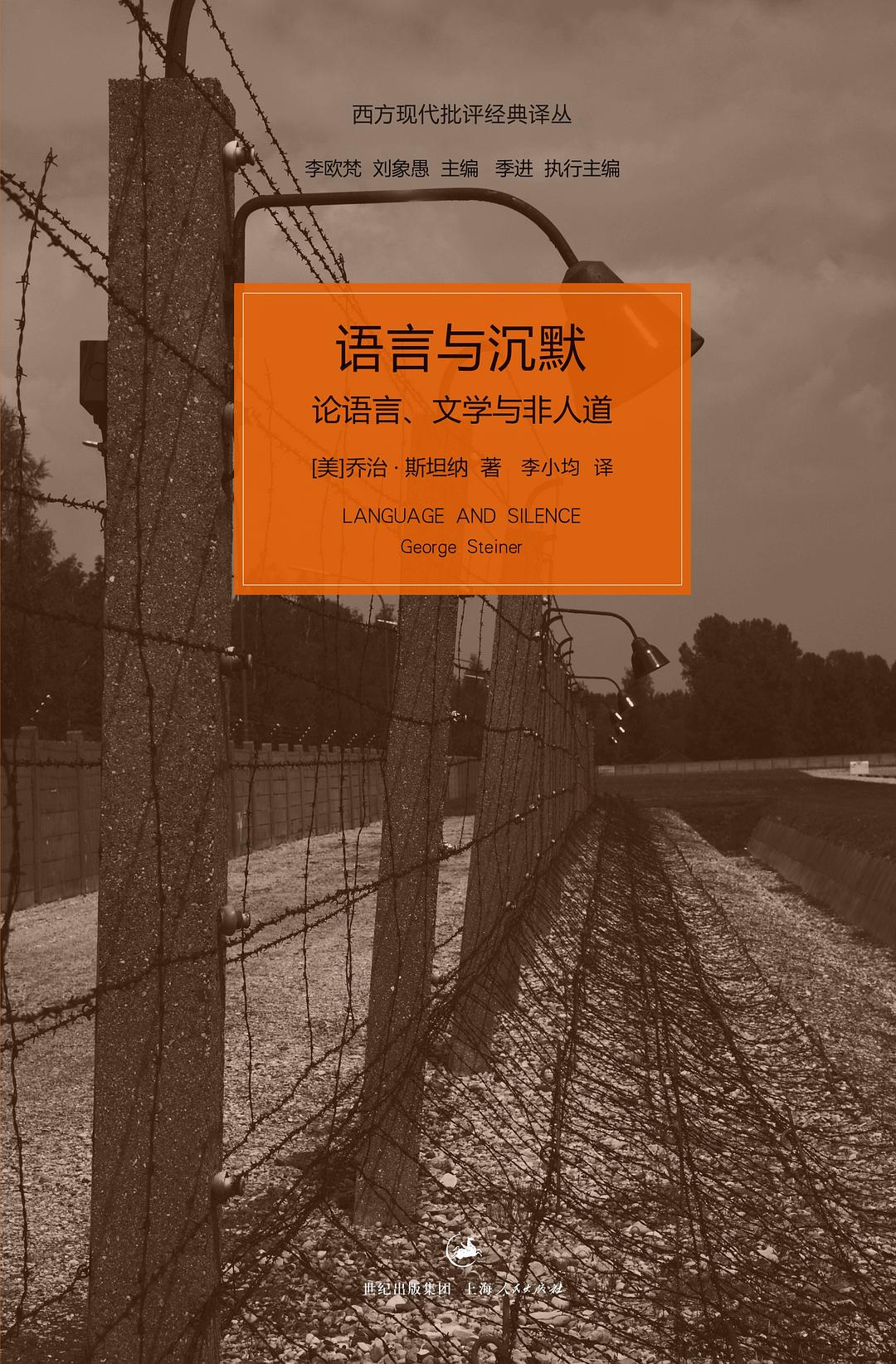WULOLIFE
《语言与沉默》作者: [美]乔治·斯坦纳 出版社: 上海人民出版社 原作名: Language and Silence
《语言与沉默》作者: [美]乔治·斯坦纳 出版社: 上海人民出版社 原作名: Language and Silence
Couldn't load pickup availability
Description
内容简介 · · · · · ·
◆当今文学世界最伟大的心灵,当代人文主义批评大师 乔治•斯坦纳经典代表作
◆最彻骨的现代启示录,最宏阔的人文主义襟怀
本书的主题——对政治暴行的深入反思——极具当代性
对文学的梳理兼具历史感与现实关怀
可谓能指引我们重识自身与时代的经典作品
◆著名学者李欧梵倾情作序推荐
本书是乔治•斯坦纳的代表作,也是20世纪西方人文批评的经典著作。其核心议题是语言、文学批评与人道主义(及反人道主义)。其辑录的文章写于不同时期,但都共有一个根本的主题——语言的生命。在斯坦纳看来,语言是文化的代表。而现代西方的几股非人道主义逆流(尤其是纳粹)导致了语言文化的滥用与污染,使西方文学的创作陷入“沉默”。因此,在经历了种种浩劫之后,语言及其相关的现实世界究竟该何去何从?批评家与知识分子在这一过程中又该担当何种责任?
作者简介 · · · · · ·
乔治·斯坦纳 George Steiner (1929 - ),美国著名文艺批评大师与翻译理论家,当代杰出的人文主义知识分子,熟谙英、法、德等数国语言与文化,执教于牛津、哈佛等著名高校。主要研究语言、文学与社会之间的美国文理学院荣誉会员,曾 获法国政府荣誉团骑士级奖章、阿方索·雷耶斯国际奖等多项殊荣。代表作有《语言与沉默》《悲剧之死》《巴别塔之后》等。
译者李小均,深圳大学外国语学院教授。著有《自由与反讽》、《信仰之海》,译有《薇拉》、《纳博科夫评传》、《苏格拉底与阿里斯托芬》、《梅尔维尔的政治哲学》、《在西方的目光下》、《在美国》、《古罗马的马车竞赛》、《碎心曲》、《尼采的使命》等。
目录 · · · · · ·
K
勋伯格的《摩西与亚伦》
一种幸存者——献给埃利• 维瑟尔(Elie Wiesel)
后记经典荷马与学者们《圣经》
莎士比亚400 年两种翻译大师利维斯(FR LEAVIS)
俄尔甫斯及其神话:列维—斯特劳斯马歇尔• 麦克卢汉小说与今日梅里美托马斯•曼的《菲利克斯• 克鲁尔》
劳伦斯• 达雷尔与巴洛克小说建构一座丰碑“死亡是一门艺术”
马克思主义与文学马克思主义与文学批评家乔治•卢卡奇与他的魔鬼契约美学宣言走出中欧作家与共产主义托洛茨基与悲剧想像力文学与以后的历史——纪念乔治•卢卡奇译后记
